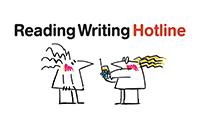Workplace Literacy Assessment
Workplace Literacy Assessment
Workplace Literacy Assessment
Literacy and numeracy are not just about reading, writing, and mathematics; sometimes overlooked are the core skills of learning, using technology, problem-solving, as well as communicating with others. Development of literacy skills is a lifetime process; we are likely to require new or enhanced skills each time we move into a different position, take on new roles and responsibilities, or as a result of changes to the environment, such as new work processes and technologies.
Around 44% of Australian adults lack the literacy skills and 55% lack the numeracy skills to cope with the demands of everyday life, according to the 2011-2012 Programme for the International Assessment of Adult Competencies (PIAAC).
Improved literacy, numeracy, and digital literacy can help everyone to contribute fully at work and in daily life. It supports people in adapting to the changing needs of future workplaces. Stronger literacy and numeracy leads to higher-performing, safer workplaces, and more confident and engaged staff. It supports employees to build on their existing skills and adapt to new practices.
Literacy assessment at work requires the collection of evidence demonstrating a person’s competence. This evidence can be gathered by observing normal day-to-day work, from the organisations records, team leader’s/manager’s verification, completed questionnaires, and verbal discussions.
Integrating a workplace literacy program into your business will assist employees to:
• Improve completion time and quality of documentation (for example, reports and documentation).
• Increase their ability to measure and perform calculations, leading to a reduction in wasted material and time.
• Improve their ability to locate information, read specifications and solve problems.
• Increase their capability to effectively use information.
• Increase uptake, engagement, and progression.
• Increase their confidence and ability to complete tasks to a high standard.
Workplace literacy programs are often delivered in conjunction with job-specific training with the impetus for the training coming from the implementation of a significant change in the workplace. For example, a firm may reorganise its production processes or implement new technology.
In the course of making such changes, employers find that their employees have basic skill deficiencies that slow or block effective implementation. Employers respond to this discovery by initiating a program to upgrade basic skills as necessary. Usually coupled with the skills upgrading is the requisite training to achieve the changes that management started out to implement.
Please contact Reading Writing Hotline on 1300 6 555 06 for more information.


